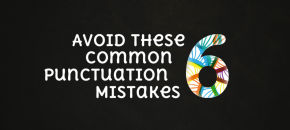Quick English: Helping Verbs
Although grammar may seem tricky, understanding it is not as hard as you think. If you're learning English, it helps to study up on the particulars that can sometimes make the language seem confusing. This week, we're taking a look at "helping verbs," which do exactly what their name promises – they help! A helping verb is a verb that helps out the main verb in the sentence by extending that verb. Still confused? We break it down for you piece by piece, so keep reading.
How to Use It
Helping verbs are verbs used to…
> assist the main verb, or the ‘action verb’.
> make sentences negative
> ask questions
These verb phases act as complete verbs. They need to be there in order to make a correct sentence. They don’t always need to be next to each other in the sentence, but they do function together.

Verb phrases
Helping verbs cannot be used without a main verb or a modal verb. Together, they form a verb phrase: helping verb + main verb = verb phrase
> We could go to the zoo today. (could + go = could go)
> She did not take the last piece of pizza. (did [not] + take = did not take)
> Have you been sitting all day? (Have been + sitting = have been sitting)
What are the helping verbs?
There are 23 helping verbs, and they can be broken into 2 main categories: primary helping verbs and modal helping verbs.
Primary helping verbs can sometimes be used as main verbs. As helping verbs, they have several purposes.
> to show tense (Therese is late to the party. She will be here in 30 minutes. She has taken the dessert with her.)
> to make the passive voice (Honey is made by bees.)
> to make a negative (Charles does not want honey in his tea.)
> to ask a question (Do you want milk in your tea?)
> to show emphasis (Yes, I do want milk.)
> to stand in for the main verb (Franz runs faster than Henrik does run.)
Modal helping verbs help modify or change the meaning of the main verb. They can express…
> necessity (I must go to the shop tonight.)
> possibility (Rheaume could buy a new phone at the mall.)
> ability (I can play the violin.)

Primary helping verbs
| be | being | been | am |
| are | was | were | have |
| has | had | do | does |
Modal helping verbs
| could | may | will |
| would | might | can |
| should | must | shall |
We hope this helps you better understand helping verbs! You could use this new skill to speak during a Vacation English course in a fun, English-speaking city! Can you think of any other lessons you might want to learn? Let us know in the comments!




